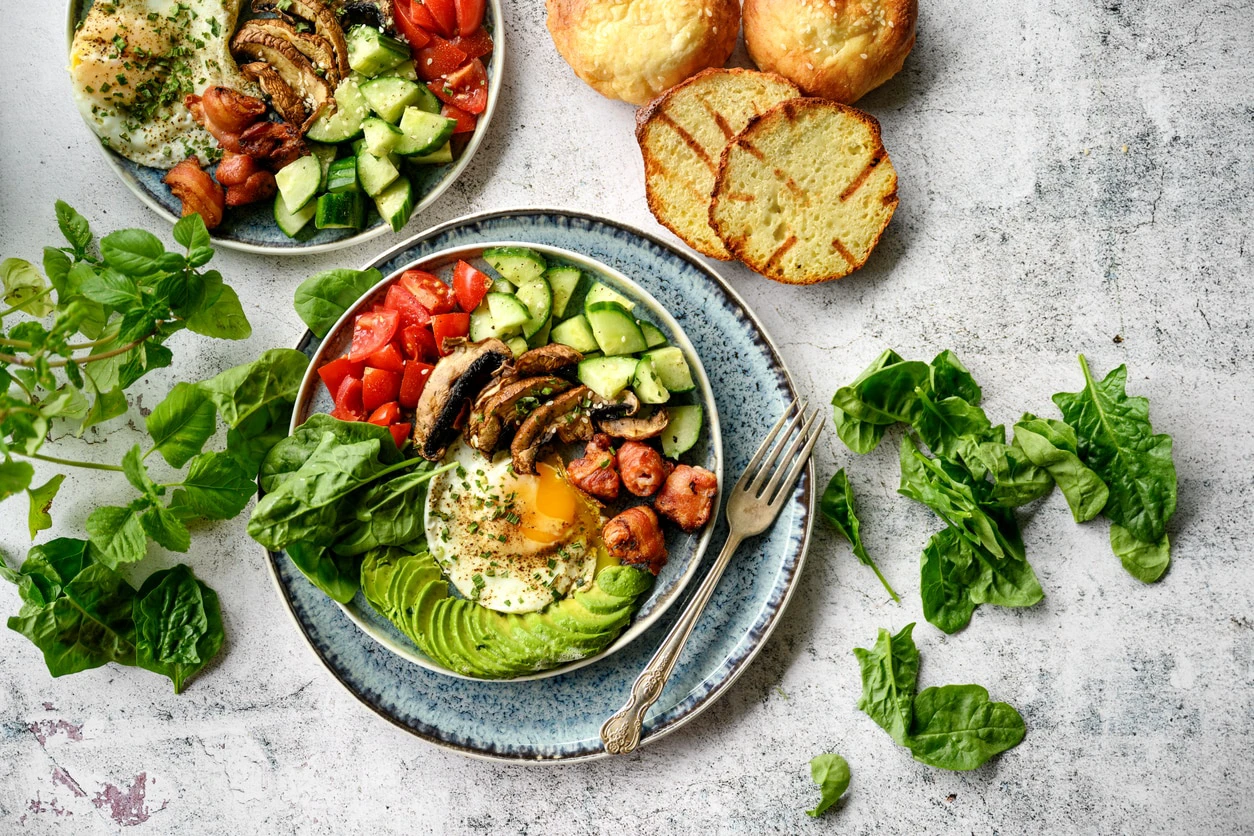Some nutrients are consistently harder to obtain from vegetarian or vegan diets unless those diets are carefully planned, fortified or supplemented.
Large reviews and position papers identify vitamin B12, vitamin D, iron, calcium, zinc, long-chain omega-3s (EPA/DHA), iodine, protein quality (essential amino acids), selenium and sometimes riboflavin/folate as the to watch. Thoughtful food choices, fortification and in a few cases, supplements, keep a vegetarian diet healthy and safe for most adults. Below we explain why these nutrients are important, and practical vegetarian food sources you can use to avoid shortfalls.
Nutrients vegetarians should focus on
1. Vitamin B12
Vitamin B12 is one of the most critica that vegetarians, especially vegans, need to pay attention to. It plays a central role in nerve health, DNA synthesis and the production of red blood cells. A deficiency can cause megaloblastic anaemia, fatigue, memory problems and even irreversible neurological damage if left untreated. Since natural B12 is almost exclusively found in animal-derived foods, strict vegetarians often struggle to get enough. In India, fortified dairy products and fortified breakfast cereals are reliable sources.
2. Iron
Iron is vital for transporting oxygen through haemoglobin and supporting energy metabolism. While vegetarian diets include plenty of iron-rich foods like lentils, rajma (kidney beans), kala chana, green leafy vegetables, jaggery, sesame seeds, and ragi, the form of iron in plants (non-heme iron) is less easily absorbed than the heme iron from meat. This means vegetarians may still face a higher risk of anaemia. To improve absorption, pair iron-rich foods with vitamin C sources such as amla, guava, lemon or capsicum. At the same time, avoid drinking tea or coffee with meals, as they contain tannins that hinder absorption.
3. Calcium
Calcium is essential for building and maintaining strong bones and teeth, as well as for heart and muscle function. While dairy products like milk, curd and paneer are excellent sources for lacto-vegetarians, those who avoid dairy may need to rely on calcium-fortified plant-based milks, tofu made with calcium salts, ragi, sesame seeds, and certain leafy greens like drumstick leaves. One challenge with plant calcium sources is the presence of compounds like oxalates and phytates that reduce absorption. This makes dietary variety crucial.
4. Vitamin D
Vitamin D works hand in hand with calcium to maintain bone health and also influences immunity and mood regulation. In India, where sunlight is abundant, one would assume deficiencies are rare but studies suggest otherwise. Limited sun exposure, pollution, skin pigmentation and indoor lifestyles mean many Indians, vegetarian or not, are deficient in vitamin D. Very few plant foods naturally contain it, except UV-exposed mushrooms.
5. Zinc
Zinc supports immunity, growth, wound healing and reproductive health. Plant-based sources include legumes, chickpeas, peanuts, pumpkin seeds, sesame seeds and whole grains. However, phytates in these foods bind zinc, making it less bioavailable. Traditional Indian cooking methods like sprouting moong, fermenting dosa/idli batter, or soaking beans overnight reduce phytates and enhance absorption.
6. Omega-3 fatty acids
Omega-3s are crucial for brain, eye and heart health, particularly the long-chain forms EPA and DHA. These are naturally present in fish but not in plant foods. Vegetarians rely on alpha-linolenic acid (ALA) found in flaxseeds, chia seeds, walnuts and mustard oil. The body can convert ALA to EPA and DHA, but the conversion rate is inefficient, sometimes less than 10%. That’s why vegetarians, especially pregnant women or older adults, may still fall short. Including ground flaxseed in chapatis or smoothies and snacking on walnuts daily is a practical way to improve omega-3 intake.
7. Protein quality
While vegetarians often meet total protein requirements, the quality of protein meaning the balance of essential amino acids can sometimes be suboptimal, especially in vegan diets. Indian meals have a natural advantage here: combinations like dal with rice or roti with sabzi ensure complementary amino acids are consumed together. Soy-based foods (tofu, soy chunks), dairy, pulses, nuts and seeds are excellent vegetarian protein sources.
8. Selenium
Selenium acts as an antioxidant and supports thyroid function. Its content in plant foods varies depending on soil selenium levels, which are often inconsistent across Indian regions. While dairy, whole grains and legumes contain some selenium, Brazil nuts are the richest natural source worldwide (just one or two nuts a week can meet daily needs). Since Brazil nuts are not commonly eaten in India, vegetarians can focus on including a variety of grains, pulses and dairy products to support adequate selenium intake.
Attentively add these nutrients to your diet today if you are a vegetarian to ensure a well-rounded, nutrient-dense diet.
